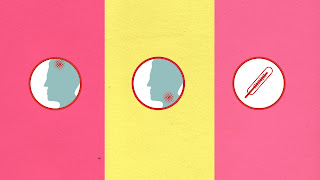Understanding the Key Symptoms of COVID-Omicron Variant
Introduction
In recent times, the COVID-19 pandemic has affected millions of people worldwide. As the virus continues to evolve, a new variant known as COVID-Omicron has emerged, raising concerns and requiring a closer look at its key symptoms. In this article, we will explore the latest information regarding COVID-Omicron symptoms, their significance, and what you need to know to stay informed and safe.
Also, see
- Sleep Habits for Optimal Health: A Comprehensive Guide to Enhancing Your Well-being through Better Sleep
- The Path to Mental Wellness: Embracing a Holistic Approach for Overall Well-being
- Guide to Achieving Optimal Fitness: Essential Tips for a Healthy Lifestyle
- A Heartfelt Tribute to Mothers: Unveiling the Significance of Mother's Day
- The Link Between Nutrition and Health: Exploring the Impact on Physical Well-being, Mental Wellness, and Chronic Disease Prevention
- Common Health Problems: Understanding their Causes and Symptom
The Emergence of COVID-Omicron
The COVID-Omicron variant also referred to as B.1.1.529, was first identified in May 2023. It has since gained attention due to its potential to spread rapidly and impact public health. Scientists and healthcare professionals have been closely monitoring this variant to better understand its behavior and symptoms.
Key Symptoms of COVID-Omicron
Fever: One of the common symptoms experienced by individuals infected with COVID-Omicron is an elevated body temperature. If you notice a sudden rise in body temperature, it is important to consider the possibility of being infected.
Cough and Sore Throat: COVID-Omicron can also cause respiratory symptoms such as a persistent cough and a sore throat. These symptoms may vary in severity and can be accompanied by other respiratory discomforts.
Fatigue and Weakness: Feeling excessively tired or experiencing a general sense of weakness can be indicative of a COVID-Omicron infection. If you notice a sudden decline in energy levels, it is essential to pay attention to other accompanying symptoms.
Headache: Headaches are commonly reported among individuals infected with COVID-Omicron. If you experience persistent headaches that are out of the ordinary for you, it is recommended to monitor your symptoms closely.
Loss of Taste and Smell: An altered sense of taste or smell is another significant symptom associated with COVID-Omicron. If you notice a sudden change or loss in these senses, it is essential to consider the possibility of an infection.
Body Aches: Muscle and body aches are reported by some individuals infected with COVID-Omicron. These aches may affect different parts of the body and can range from mild to severe.
Difficulty Breathing: COVID-Omicron can cause respiratory difficulties, particularly in individuals with pre-existing respiratory conditions. If you experience shortness of breath or any other breathing problems, it is crucial to seek medical attention promptly.
Gastrointestinal Symptoms: Some individuals infected with COVID-Omicron may experience gastrointestinal issues, such as diarrhea, nausea, or vomiting. These symptoms can occur alongside or independently of other COVID-19 symptoms.
The Importance of Recognizing COVID-Omicron Symptoms
- Identifying COVID-Omicron symptoms promptly is crucial for several reasons: Early detection allows for immediate isolation and reduces the risk of transmission to others.
- Proper medical care can be sought promptly, leading to better outcomes and potentially preventing severe complications.
- It enables health authorities to track and monitor the spread of the variant effectively.
How to Respond if You Experience COVID-Omicron Symptoms
If you suspect that you may have contracted COVID-Omicron or are experiencing symptoms associated with the variant, it is important to take the following steps:
Isolate Yourself: Stay at home and avoid close contact with others to minimize the risk of transmission.
Contact Healthcare Professionals: Reach out to healthcare providers or local health authorities for guidance on testing and further steps to take.
Follow Medical Advice: Comply with the instructions provided by healthcare professionals regarding testing, treatment, and self-isolation guidelines.
Inform Close Contacts: Notify individuals with whom you have had close contact so that they can take appropriate precautions and monitor their own health.
Practice Good Hygiene: Maintain proper hand hygiene, wear a mask when necessary, and follow recommended protocols to reduce the spread of the virus.
Conclusion
Staying informed about the key symptoms of the COVID-Omicron variant is crucial in the ongoing battle against the pandemic. By recognizing these symptoms and taking appropriate action, we can help protect ourselves and those around us. If you experience any of the symptoms mentioned, it is essential to seek medical advice and follow the recommended guidelines.
FAQs (Frequently Asked Questions)
1. What is COVID-Omicron?
COVID-Omicron is a new variant of the COVID-19 virus, identified as B.1.1.529. It has gained attention due to its potential for rapid spread and impact on public health.
2. What are the key symptoms of COVID-Omicron?
The key symptoms of COVID-Omicron include fever, cough, sore throat, fatigue, weakness, headache, loss of taste and smell, body aches, difficulty breathing, and gastrointestinal symptoms.
3. How can I recognize COVID-Omicron symptoms?
You can recognize COVID-Omicron symptoms by being aware of common signs such as fever, persistent cough, altered sense of taste or smell, fatigue, headache, and respiratory difficulties. However, it's important to consult healthcare professionals for a proper diagnosis.
4. Why is it important to recognize COVID-Omicron symptoms?
Recognizing COVID-Omicron symptoms is crucial for early detection, prompt isolation, and reducing the risk of transmission. It also helps individuals seek appropriate medical care and enables health authorities to monitor the spread effectively.
5. What should I do if I experience COVID-Omicron symptoms?
If you experience COVID-Omicron symptoms, it is important to isolate yourself, contact healthcare professionals for guidance, follow medical advice, inform close contacts, and practice good hygiene to minimize the spread of the virus.

No comments:
Post a Comment